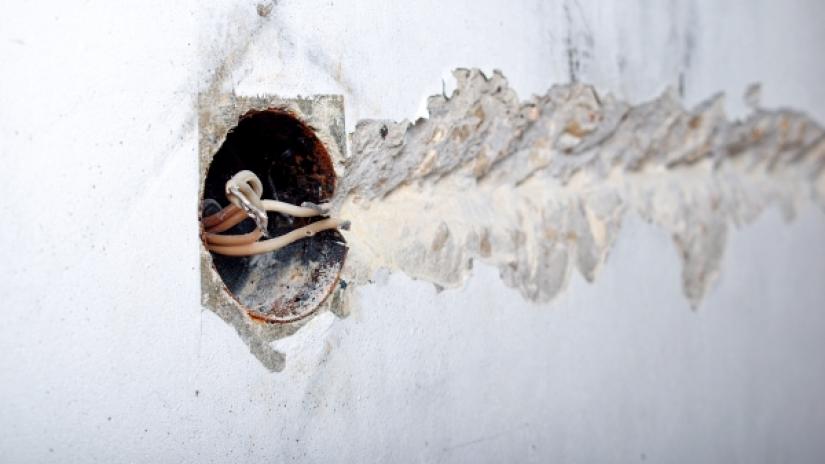Emergency Certified Electricians in Dallas, TX.
Call this Monday to Get 10% OFF
Emergency Certified Electricians in Dallas, TX.
Call this Monday to Get 10% OFF

The electrical wiring can be imagined as the road electricity takes to get from Point A to Point B. These roads are made of specific metals including copper wires and aluminum wires. Although aluminum wiring is commonly used for power grids, utility companies, and even airplanes, the practice of using aluminum wiring in homes was discontinued in the 1970s. Still, some old buildings still have aluminum wiring. At Mr. Electric of Dallas, we recommend property owners with buildings over 40 years old have their wiring inspected. Continue reading to learn about the risks of aluminum wiring, how you can determine whether your home has aluminum wiring, and what you can do about it.
What Is Wrong with Aluminum Wiring?
Home builders in the 1960s and mid-1970s opted for aluminum wiring over copper wiring because copper is more expensive. Both metals conduct electricity though. So, what is the problem? What is wrong with aluminum wiring?
Aluminum is softer than copper and gets far hotter than copper. When aluminum heats up, it expands more and is more prone to warping over time. Aluminum can also rust. As you might suspect, these attributes are bigly disadvantageous when it comes to electrical wiring.
The fluctuating size and shape of aluminum wiring often cause the wires to come loose from their connections. If rusty, the wiring will limit the flow of electricity. In turn, appliances and electronics will draw more electricity to make up for loose connections and rusting, which causes even more heat and expanding wires. The ultimate result is often an electrical fire and damaged appliances.
Signs That You Have Aluminum Wiring
Aluminum wiring will not immediately collapse. Aluminum CAN conduct electricity safely, but it is not considered safe compared to alternatives. A survey released in 2011 by the Consumer Product Safety Commission indicated homes with aluminum wiring built before 1972 were over 50 times more likely than those with aluminum wiring to have at least one electrical outlet in a fire hazard condition.
Unfortunately, even some houses built after 1972 have portions of the electrical system that use aluminum wiring. So how do you know your building has aluminum wiring? Here are some tell-tale signs:
If you are worried about your electrical wiring, then call Mr. Electric of Dallas to have one of our certified electricians take a look. We can have an electrician dispatched to your location in as soon as within thirty minutes!